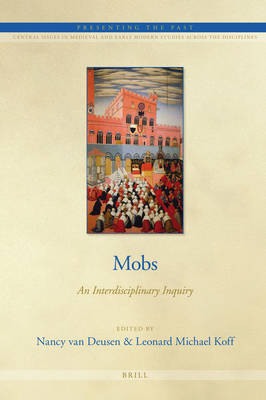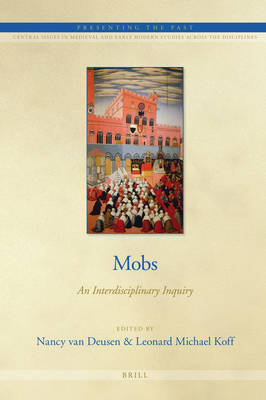
- Afhalen na 1 uur in een winkel met voorraad
- Gratis thuislevering in België vanaf € 30
- Ruim aanbod met 7 miljoen producten
- Afhalen na 1 uur in een winkel met voorraad
- Gratis thuislevering in België vanaf € 30
- Ruim aanbod met 7 miljoen producten
Zoeken
€ 320,95
+ 641 punten
Omschrijving
The topic of mobs has resonances in a remarkable number of disciplines and provides a link between past and present--mobs are clearly of much importance today. The idea of mobs provides the context for all the essays and topics in this volume -- from Heraclitus to the writings of Elias Canetti to the notion of internet mobs. The essays here speak to the complex nature of the mob: its defining characteristics and the varying consequences of its behavior. Mobs as a book brings wide-ranging clarity to a topic that touches such disciplines as medieval studies, literature, musicology, theology and philosophy, history, social theory, the development of the early university, and theatre.
Contributors are (in order within the volume): Leonard M. Koff, Ben Schomakers, Bernard S. Bachrach, Nancy van Deusen, Paul W. Knoll, Charlotte Bauer, Andrew Galloway, Robert W. Hanning, Terence Tunberg, Peter Howard, Cornelia Oefelein, Teofilo Ruiz, Richard Taruskin, David B. Rosen, Aino Paasonen and Richard Sogliuzzo.
Contributors are (in order within the volume): Leonard M. Koff, Ben Schomakers, Bernard S. Bachrach, Nancy van Deusen, Paul W. Knoll, Charlotte Bauer, Andrew Galloway, Robert W. Hanning, Terence Tunberg, Peter Howard, Cornelia Oefelein, Teofilo Ruiz, Richard Taruskin, David B. Rosen, Aino Paasonen and Richard Sogliuzzo.
Specificaties
Betrokkenen
- Uitgeverij:
Inhoud
- Aantal bladzijden:
- 404
- Taal:
- Engels
- Reeks:
- Reeksnummer:
- nr. 3
Eigenschappen
- Productcode (EAN):
- 9789004212459
- Verschijningsdatum:
- 25/11/2011
- Uitvoering:
- Hardcover
- Formaat:
- Genaaid
- Afmetingen:
- 165 mm x 244 mm
- Gewicht:
- 793 g

Alleen bij Standaard Boekhandel
+ 641 punten op je klantenkaart van Standaard Boekhandel
Beoordelingen
We publiceren alleen reviews die voldoen aan de voorwaarden voor reviews. Bekijk onze voorwaarden voor reviews.










